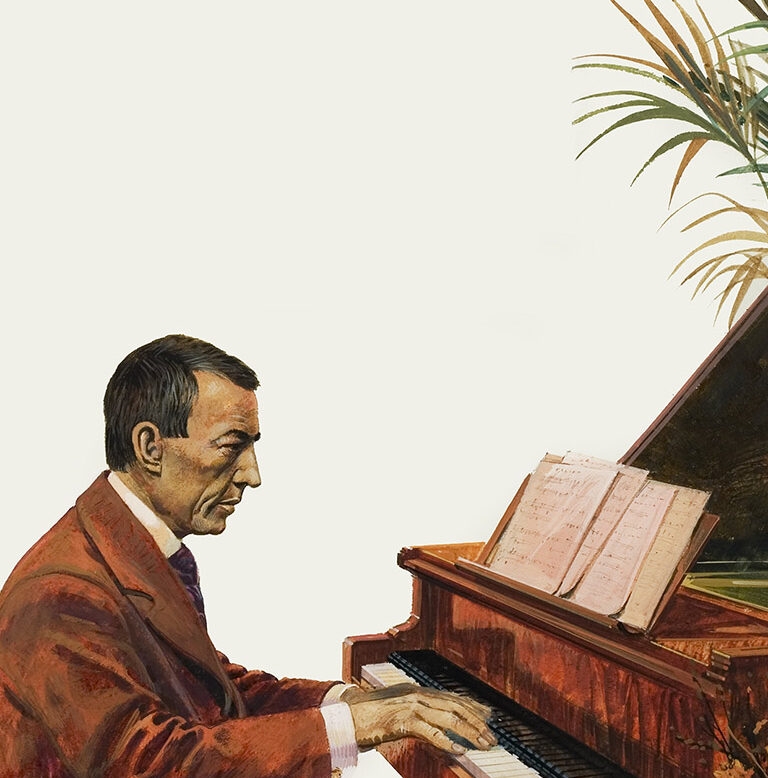
A train screams through a station, billowing steam as it shoots past the platform in a flash of paint and steel. As it disappears into the distance, the opening chords of Sergei Rachmaninoff’s Second Piano Concerto begin – expansive, powerful, and sombre – the piano sweeping like a pendulum through the orchestra. This is the start of David Lean’s 1945 film Brief Encounter, about a doomed love affair between two married people who meet by accident and agree to part rather than tear their lives and families apart. Throughout the film, it’s left to Rachmaninoff’s music to tell us how they are feeling. The concerto encapsulates their longing for what cannot be; this is music of exquisite, all-consuming, passionate and impossible emotion.
The same qualities that made Rachmaninoff’s music useful for Lean’s film have ensured that, 150 years after his birth, he remains one of the most enduringly popular composers of the 20th century. His works are characterised by luscious orchestrations and memorable melodies that express heartfelt melancholy. Rachmaninoff once said that “melody is music – the integral foundation of all music”, and this conviction is evident in all his works. Even those who don’t know Rachmaninoff’s name might be able to recognise one of his tunes from adverts, films, and even pop music (the song “All by Myself”, which has itself appeared in Bridget Jones’s Diary, Friends and more, is based on the second movement of the Second Piano Concerto).



